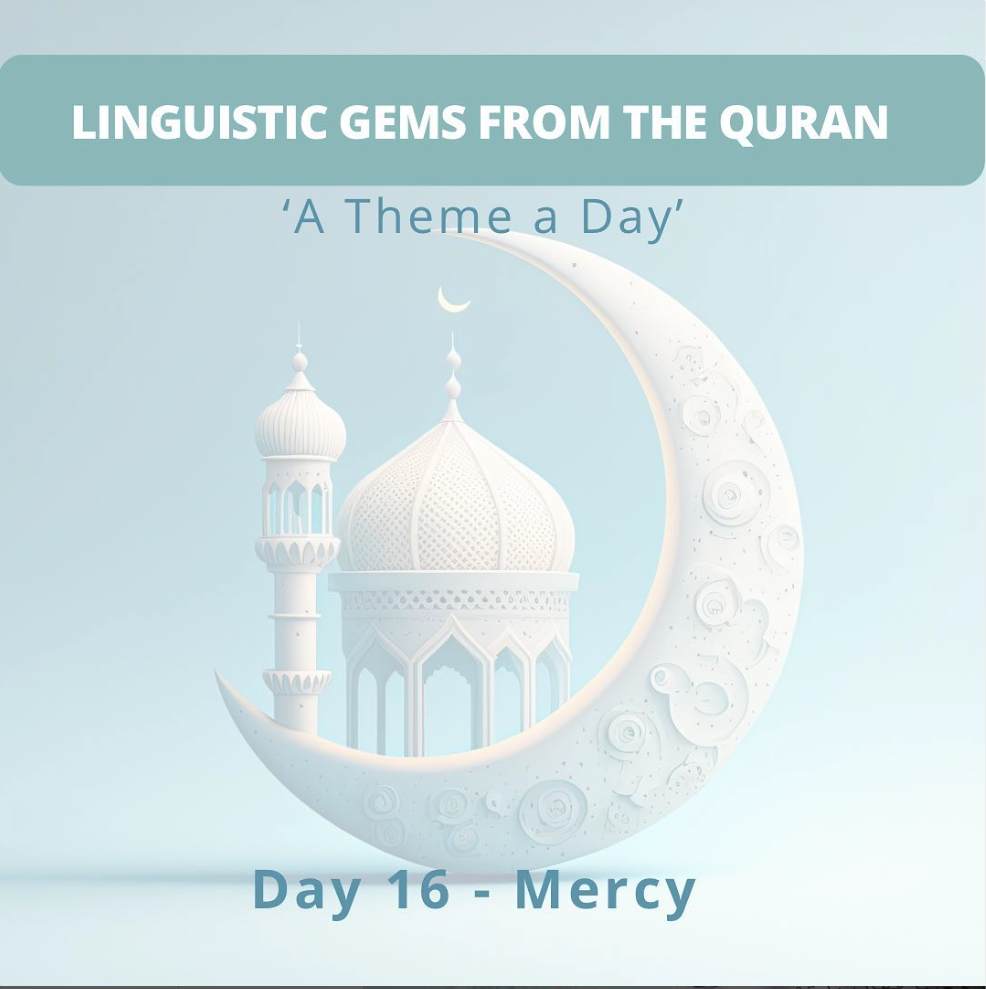 There is no doubt that the most frequently mentioned names of Allah are al-Rahman الرحمن and al-Rahim الرحيم, as they appear in the basmala (saying bismillah al-Rahman al-Raheem بسم الله الرحمن الرحيم ), which precedes every chapter (but one) of the Quran and is recited by Muslims before initiating any task.
There is no doubt that the most frequently mentioned names of Allah are al-Rahman الرحمن and al-Rahim الرحيم, as they appear in the basmala (saying bismillah al-Rahman al-Raheem بسم الله الرحمن الرحيم ), which precedes every chapter (but one) of the Quran and is recited by Muslims before initiating any task.
The consistent mention of these two names alongside Allah’s name indicates their significance and importance within Islamic beliefs, making it essential to understand their meanings and implications.
Both al-Rahman and al-Rahim originate from the root rā’- hā’- mīm (ر-ح-م), which means to treat or regard someone with mercy, compassion, or tenderness.
The word al-rahim الرَّحِم (the womb) is also derived from this root, as it symbolizes the tender and compassionate nature of the womb towards the fetus it carries.
Although both words share the same root, their meanings differ due to their forms. Rahman is a hyperbolic form (sīghah mubālaghah) that conveys a sense of vastness and boundlessness. It is an inherent and inseparable quality of Allah.
Rahim, as a permanent adjective (sifah mushabbahah), denotes constant renewal and a quality that is determined by the recipient’s actions and behavior.
Furthermore, the term al-Rahman is exclusively attributed to God. Even during pre-Islamic times, Arabs did not describe a person as al-Rahman, but rather as rahim. The sole recorded exception is Musaylimah the Liar, who was called Rahman al-Yamamah, although never just “Rahman.” In contrast, rahim has always been used to characterise humans.
The Quran (9:128) itself describes the Prophet Muhammad, peace be upon him, as being:
بالْمُؤْمِنِينَ رَءُوفٌ رَّحِيمٌ
to the believers is kind and merciful.
But why are two words with similar meanings used together in the same phrase? The answer may lie in the progression of Allah’s Names in the basmala, which exhibit two contrasting yet harmonious directions:
i) General to specific: The apex of mercy in all its forms, embodied in the Name Allah, is followed by mercy extended unconditionally to everyone (as signified by al-Rahman) and then by mercy granted in response to and as a reward for specific actions (as signified by al-Rahim).
ii) Specific to general: The application of the names themselves begins with Allah, the Creator, which refers exclusively to Him and cannot be used as a descriptor but can only be described. This is followed by al-Rahman, an adjective applicable only to Allah, and then by Rahim, an adjective that can also describe people.
Recalling this perspective when reciting the basmala may help us better comprehend the all-encompassing nature of mercy as expressed in Allah’s statement (7:156):
وَرَحْمَتِي وَسِعَتْ كُلَّ شَيْءٍ
My mercy encompasses all things
And Allah knows best.
